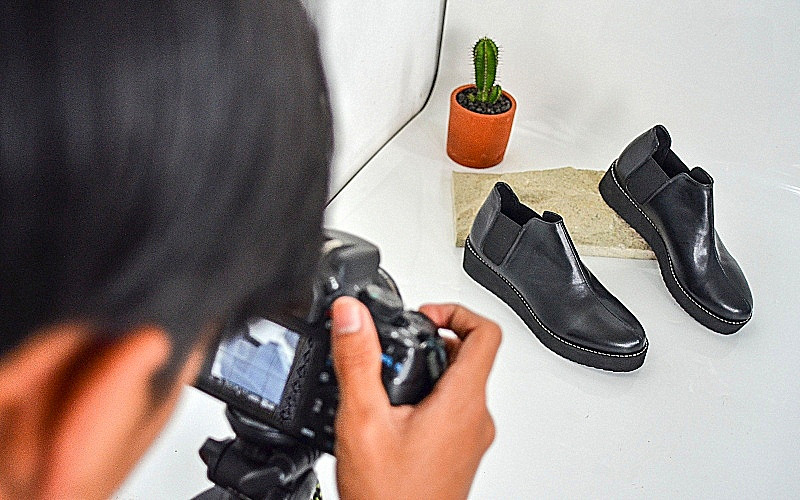Popular Reads
Top Results
Can't find what you're looking for?
View all search resultsPopular Reads
Top Results
Can't find what you're looking for?
View all search resultsCOVID-19 accelerates MSME digitalization despite inadequate connectivity
Change text size
Gift Premium Articles
to Anyone
T
he COVID-19 pandemic has opened up an unexpected opportunity in digitalization as more local micro, small and medium enterprises (MSMEs) go online than before, but the lack of internet infrastructure in parts of Indonesia has made it difficult for some businesses to bounce back.
That was the summary of a Jakpost UpClose webinar on Thursday, titled “Report launch: COVID-19’s impact on Indonesian MSMEs”. The report was the result of a joint study by the United Nations Development Program (UNDP) and the University of Indonesia’s (UI) Faculty of Economics and Business Institute for Economic and Social Research (LPEM FEB UI).
The study covered 1,180 MSMEs across 15 provinces of Indonesia and was conducted using in-depth interviews and focus-group discussion techniques. The study found that more than 45 percent of MSMEs surveyed had problems obtaining raw materials and had found it hard to distribute their products as a result of the pandemic.
At the same time, two thirds of the MSMEs suffered from steep revenue declines during the pandemic, while more than 80 percent had lower profit margins.
Amid such hardship, around 44 percent of the MSMEs surveyed had joined online marketplaces or e-commerce platforms such as Tokopedia and Shopee to survive the pandemic.
UNDP Indonesia Country Economist Rima Prama Artha said the pandemic had accelerated the digitalization of MSMEs.
“Prior to the pandemic, only 28 percent of the MSMEs had an online presence. Since the pandemic, the number has grown to 44 percent. Yet, the digital transition is not as high as we expected them to be,” Rima said during the webinar.
LPEM FEB UI Business Climate and Global Value Chain Research Group Head Mohamad[1] D. Revindo attributed the less-than-ideal rate of MSME digitalization to a lack of internet infrastructure in Indonesia.
“You have to remember, 2018 data indicated that 12,000 villages across Indonesia had yet to be covered by the internet. Even those that are already covered by the internet still experience connection glitches now and then,” he said.
“This is nobody’s fault, actually. Our nation has an impossibly difficult terrain,” he continued.
Because of the challenge, Mohamad advised policymakers to think in simpler terms about MSME digitalization.
“Instead of thinking about how to help them evolve to the online marketplace straight away, what about simply encouraging them [especially those with poor internet connections] to use WhatsApp to conduct their activities? Then you can move slowly to social media platforms before moving to the online marketplace,” he said.
The report also highlights that the adverse impact of the pandemic is felt by both women and men who run MSMEs. However, Rima said that women MSME entrepreneurs in Indonesia often faced a lack of funding access.
MSMEs serve as Indonesia’s economic backbone, employing about 97 percent of the country’s workforce, while contributing more than 61 percent to the country’s gross domestic product (GDP). Indonesia’s MSMEs make the largest contribution to GDP of any Southeast Asian country.
While facing the hardships brought on by the pandemic, in addition to shifting to online marketplaces, MSMEs also cope by modifying their products and minimizing their expenses, according to Rima.
About 25 percent of the MSMEs shift the products they offer to adjust to current demands, while 42 percent are reducing their electricity, water and gas use, and finally, 30 percent are laying off their employees or cutting their compensation.
Thankfully, according to Rima, the government’s assistance has helped MSMEs cushion the impact of COVID-19 to keep their businesses running, as 47 percent of the MSMEs surveyed said they had a hard time accessing these raw materials.
“Now, we also need the government to help these MSMEs access their customers, because during the pandemic, there is a steep decrease in consumer demand,” Rima explained.










